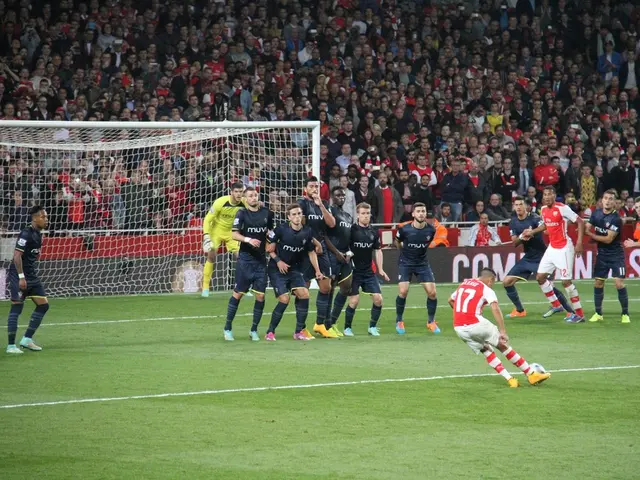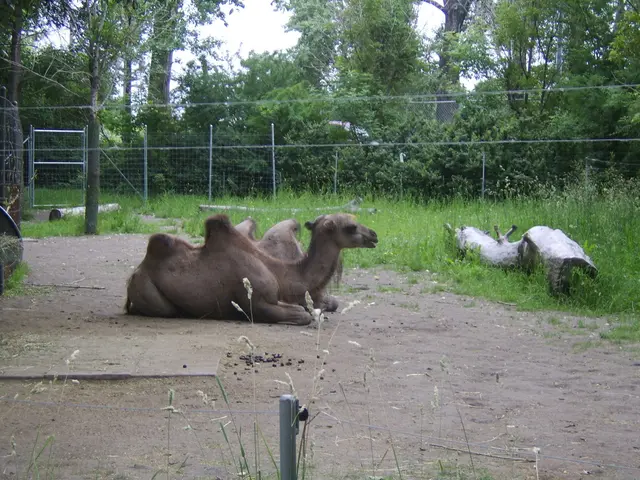International Friction: Indian Parliamentarians Criticize Pakistan During Overseas Visits
Qatar - Amidst heightened tension between India and Pakistan, a bipartisan team of Indian lawmakers visited Doha over the weekend for diplomatic outreach following an intensified military clash between the neighboring countries.
The clash erupted after a deadly attack in the Indian-administered Kashmir town of Pahalgam that left 26 people, mainly tourists, dead on April 22. This escalated into days of missile and drone exchange between the two nuclear powers, before a ceasefire was eventually reached.
Pakistan has denied India's accusations of being involved in the Pahalgam attack, which reportedly targeted people based on their religion. Supriya Sule, the parliamentarian from the opposition Nationalist Congress Party who headed the Indian delegation, expressed indignation, stating, "India has been hurt by an unprecedented attack on its soul..."
As part of New Delhi's broader efforts to shape global opinion in the aftermath of the conflict, this team is one of seven delegations dispatched by the Modi government to over 30 countries to sensitize other governments about Pakistan's alleged ties to "terror groups" responsible for numerous attacks in Kashmir and other parts of India over the past few decades.
This particular delegation, comprising MPs and retired diplomats, visited Qatar from May 7-9 and held discussions with the Gulf state's officials. They will continue their mission to South Africa, Ethiopia, and Egypt.
During a press conference in a Doha seaside hotel, Sule emphasized the aim of their mission was to create a unified global opinion against Pakistan. Rudy, a BJP MP and former federal minister, reiterated this, describing the delegation as "preventive diplomacy" against terrorism.
The Pahalgam attack, the worst on tourists in the disputed Kashmir region in decades, was claimed by The Resistance Front (TRF), a relatively obscure group suspected of being a front for Lashkar-e-Taiba (LeT), a Pakistan-based armed group. India has accused Pakistan of using groups like the LeT to support an armed secessionist movement in Indian-administered Kashmir, a charge Pakistan denies.
Critics have questioned India's diplomacy throughout the crisis, with some suggesting the truce was brokered by U.S. President Donald Trump, contrary to India's longstanding policy of resolving disputes bilaterally without international interference. However, Indian officials have downplayed these criticisms, maintaining they speak with a united voice on the issue.
Manish Tewari, a parliamentarian from the opposition Congress party and former federal minister, stated, "India does not make a distinction between the semi-state actors and the state which spawns that. Over the past four and a half decades, there is documented evidence provided to the international community - and to Pakistan - that terror emanates from their soil."
Amidst these escalating tensions, Officials from Qatar expressed support for India's stance on zero tolerance towards terrorism. Speaking to journalists, Sule said that the Qatari government's response to their submissions had been "very encouraging." Meanwhile, Rudy added, "We do not differentiate between a terrorist state and a terrorist."
- The intensified military clash between India and Pakistan, following a deadly attack in Pahalgam, has led to a surge in diplomatic outreach, with a bipartisan team of Indian lawmakers visiting Doha, Qatar to discuss the issue.
- As diplomatic efforts continue, the Pahalgam attack has been claimed by The Resistance Front (TRF), a group suspected of being a front for Lashkar-e-Taiba (LeT), a Pakistan-based armed group. India accuses Pakistan of supporting such armed groups.
- Amidst the diplomatic mission to Qatar, Supriya Sule, the leader of the Indian delegation, expressed the aim of creating a unified global opinion against Pakistan, labelling it as "preventive diplomacy" against terrorism.
- In the chaotic world of international politics, opinions about the Pahalgam conflict have been divided. While critics question India's diplomacy, with some suggesting the truce was brokered by U.S. President Donald Trump, Indian officials maintain a strong stance, accusing Pakistan of breeding terror.
- As the European-leagues and premier-league continue to captivate sports fans worldwide, the ongoing conflict between India and Pakistan has given rise to a different kind of game - one filled with diplomacy, opinions, and the ever-present threat of war and terrorism.








